They say all good things must come to an end. In this industry, we often focus on the numbers when it comes to the sale or closing of a business… What sort of revenue did they have? What kind of deal did the owners get? How much did they sell for? But for business owners, there is an entire emotional and psychological journey when they are exiting the businesses they have poured money, sweat, and often, tears into.
No two exit strategies are exactly the same, and in the following pages we profile four business owners who have transitioned, or are looking to transition, out of ownership. What was their motivation? What did the process look like for them? How did they communicate their exit to their patients and staff? How did leaving their business make them feel? And what do their lives look like post-ownership?
LIFE SOMETIMES HAPPENS
Bryan Finley, LDO | Island Opticians, Palm Beach, FL | DATE CLOSED: May 2016
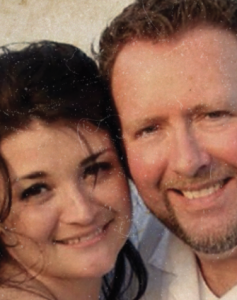
Bryan and Amie Finley
The original founder of the business, Stuart Villars, worked at Lugene Opticians on Worth Avenue, the luxury-shopping destination in Palm Beach, until they closed unexpectedly. Shortly after, he opened Villars Opticians on Peruvian Avenue, one block north of Worth. The business moved twice, but always stayed on Peruvian. In 2010, Mr. Villars decided it was time to relax a bit, and listed the business for sale. I was living in Oklahoma but saw the listing at a continuing education event I attended for licensing requirements in preparation for a move to Florida. I contacted Mr. Villars about purchasing it but, unfortunately, my then wife wasn’t interested in moving to Palm Beach, even though it was a tremendous opportunity. Mr. Villars sold the business to Christopher Moné, who renamed it Moné Optical Gallery.
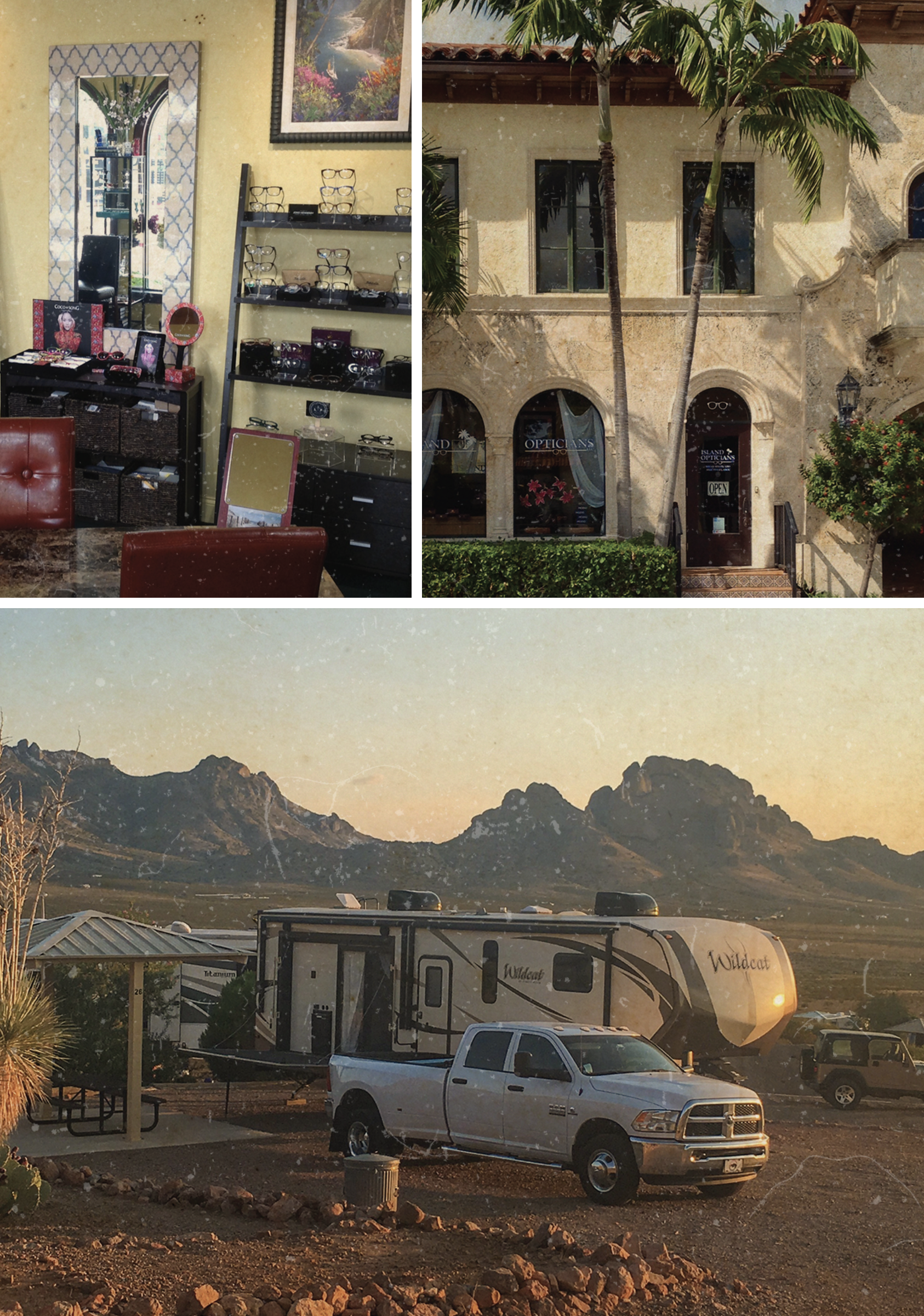
After a short time in Florida, my marriage ended and I moved back to Oklahoma. I met Amie and we married. Again, I was looking for work opportunities in Florida when I saw a listing for a Moné Optical Gallery in Palm Beach. I told her: “No way, surely not!” She was excited about the prospect of owning our own business, so we contacted Chris Moné and struck a deal. We took over ownership and re-opened as Island Opticians on our first wedding anniversary, providing independent eyewear to the people of Palm Beach.
Although a bit stressful due to seasonality (Palm Beach has about 2,000 year-round residents but swells to 9,000 in winter), we loved our little 300 sq. ft boutique … But then life started to happen. Three months after opening, one of our daughters told us she was going to have a baby. Then, four months after that, another daughter called with the same news! Suddenly, we were going to have grandkids 1,500 miles away. Not long after the grandkids were born, our parents started having some medical issues. We tried traveling back to Oklahoma frequently to see the kids, grandkids and parents, but eventually we decided it was important and necessary to be near our family on a regular basis, so we made the difficult decision to sell the business after only two years.
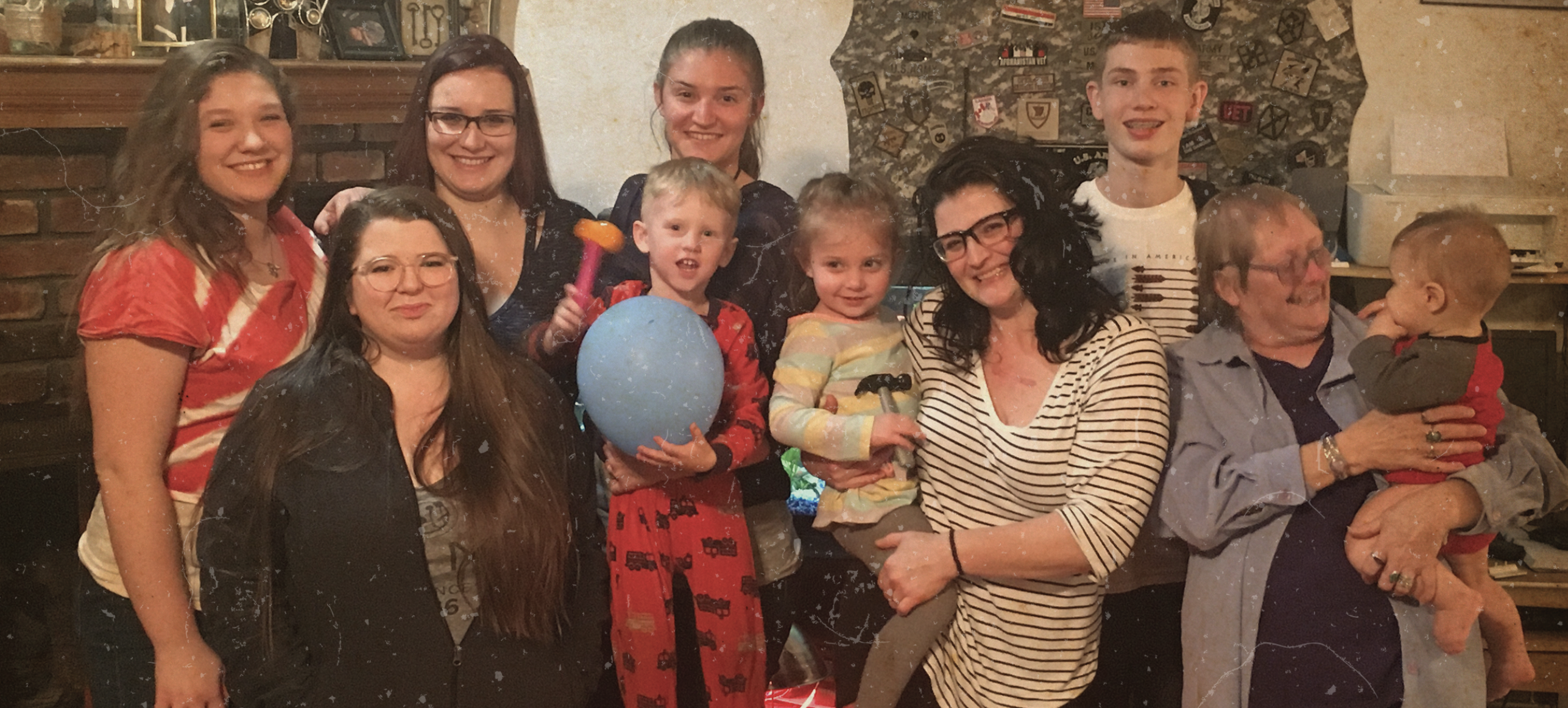
We listed the business for sale on several optical forums and sites. After several inquiries, we reached an agreement in principle to sell to an optician, so we finalized all of our moving plans. One month before the sale was to be finalized, our buyer and her financier went in a different direction. Suddenly we had no buyer and no backup plan. With no time left to find a new buyer, we went into liquidation mode. We quickly had mailers printed to send to all of our clients and potential customers, with an aggressive going-out-of-business campaign. Everybody loves a good deal, even affluent people, so we were able to sell the majority of our product in one month. I ended up staying in Palm Beach a few weeks longer than Amie; she had already committed to a start date on a new job.
Since we were an LLC, the transition was fairly simple. We just had to notify the state that we were ceasing operations. As for communicating our plans to employees — no employees, so that was easy!
The first lesson we learned was: Have a good long-term plan and plenty of capital! Realize that starting or selling a business, should the need arise, doesn’t happen quickly; have patience. Be flexible. At the end of the day, integrity is the most important thing you offer as a proprietor.
Our advice for others is to have a Plan A, Plan B and Plan C!
QUICK Q&A
What was your greatest concern about giving up ownership?
Would we recover our investment? Would we ever have such a unique ownership opportunity again? After being owners, could we be happy working for someone else? Can we trust someone else to take care of our long-time clients?
Is there a patient encounter that stands out when they found out?
Many clients called in that last month to express their disappointment. Tears were shed. Mr. Villars, upon hearing the news, called to express how crazy he thought we were, but I think he was mostly sad to see the business close. One client offered to buy the business if we’d stay!
How would you describe the emotions you went through?
It was a bit heartbreaking. I felt like I was letting Mr. Villars down, and I was sad that my “retirement plan” wasn’t going to come to fruition. But we were both excited to spend more time with family.
Would you do anything differently?
I wouldn’t have been in such a hurry to sell.
What did you do to help overcome doubt?
We just reminded ourselves of the importance of family, and that things don’t create happiness.
How do you feel about the outcome?
We’re okay with how things have turned out, and plan to return to Florida, but as retirees instead of owners! We miss owning Island Opticians, but there is a certain level of anxiety that comes with ownership that we don’t miss.
Now what?
We tried working in private practice again, but just couldn’t get past knowing how to get things done better than our employers, because we’d been both opticians and owners. So, we decided to become brand ambassadors for some of our favorite independent lines. We still work together and are able to plan our travel schedule around our family activities. We do things a lot differently than most frame reps; we bought an RV that we live and travel our six-state territory in. This way, we’re “home” every night. We’re still technically owners as independent contractors, but have a little less anxiety now!
HANDING OVER YOUR BABY
Shimul Shah, OD | Marysville Family Vision, Marysville, OH | DATE SOLD: September 2018
The practice began as an ophthalmology practice. I purchased it in 2012. I practice general optometry and the patient base is very family oriented.
Accepting it was time to end ownership was a slow, painful realization that finally took a friend telling me that I would be just signing up for years of being unhappy and financially unsettled if I didn’t. It took a lot of introspection to realize I wasn’t able to accomplish what I wanted. I am very risk averse when it comes to money, and the one thing you need in growing a business is the ability to invest in it financially.
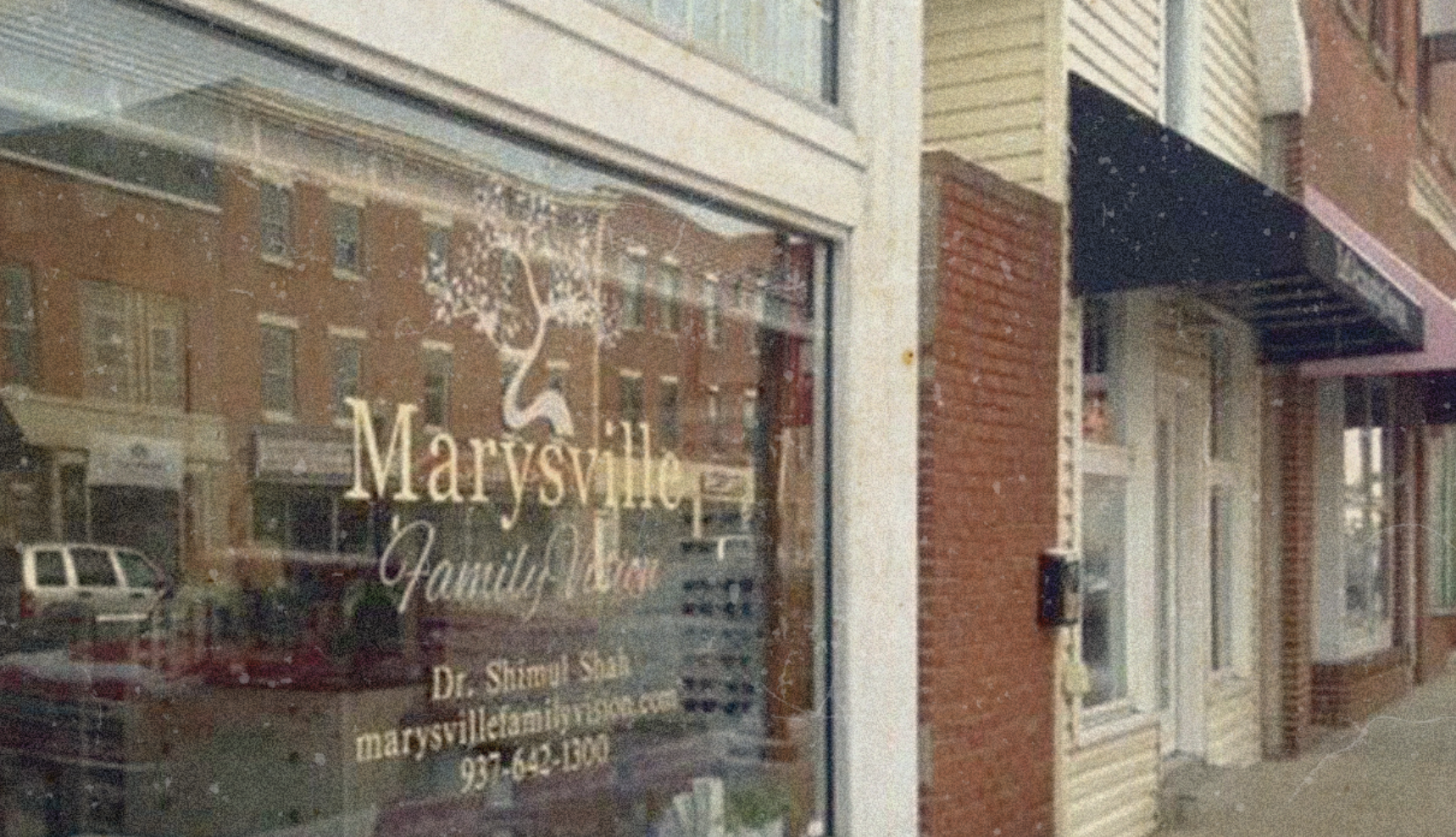
I had started asking around a little but was not actively looking for an exit strategy. When two different people gave me the same name to reach out to, I thought I should give it a try. I was hesitant to make promises and was willing to hold off until I knew that the practice, patients and my staff would all be treated with care.
A lawyer generated a Memorandum of Understanding to get my intentions on paper and list what I wanted and was not willing to budge on. An accountant helped come up with a price and negotiate the sale. The biggest help was my family, who served as my sounding board.
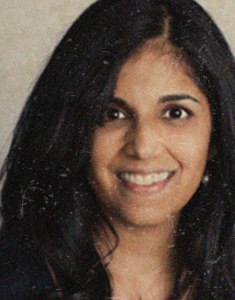
Shimul Shah, OD
When it came time to communicate the change, I spoke with each employee and made sure they knew that a part of my agreement with the new owner was their position, the hours they would be working and the pay. I needed them to know it was something I had to do for myself and that I had made every effort to make sure they were taken care of.
We sent emails to all patients letting them know the business was turning a page but the doctor, staff, products and service were not changing. They seem accepting of what has occurred.
One surprise is that I find myself slightly disconnected from the profession at the moment. I went to a conference recently where I found myself wanting to attend and listen to practice management talks but didn’t know how I could implement anything now that it wasn’t my position to worry about those things anymore. I want to refocus on patient care, but changing gears has been challenging.
The process of deciding to give away ownership of something is a grueling one. I had to really think about my life and what I wanted out of it, and whether the good outweighed the bad. I learned on a deeper level what my strengths and weaknesses were and how each contributed to the conversation, and the ultimate decision, to start placing my efforts elsewhere and to pass the practice on to more willing and able hands.
My advice to others is to have good advisers in your corner. Be specific and diligent about what you want, but know that without compromise you will probably never find anyone that’s good enough to take over your “baby.”
QUICK Q&A
What was your greatest concern about giving up ownership?
Being an employee in a space where I’m used to being in charge. Secondly, I was nervous I would lose the passion I’d had for the practice’s success.
Is there a patient encounter that stands out when they found out?
Every encounter I’ve had has been positive and supportive! I don’t think patients care so much about the behind-the-scenes stuff as long as there is continuity of services.
How would you describe the emotions you went through?
I felt a myriad of emotions ranging from failure to anxiety, sadness, and excitement. At times, I felt I was abandoning my patients, staff and Marysville. At others, I felt like I was letting down all the people that had so much faith in me. Now that it’s over, I feel peace, stability and anticipation for the future.
Would you do anything differently? No.
What did you do to help overcome doubt?
I reminded myself that the current situation was unsustainable. I could potentially keep going for another six months, maybe even a year, but ultimately that would just be delaying the peace of mind I was so desperate for.
Are you happy with the outcome? Yes
Now what?
My plans include making more time for traveling, cooking, reading, and spending time with friends and family. I may get involved in the political and legislative branches of optometry and see how I can use my talents to help optometry grow in a different context.
PRIVATE PRACTICE TO PRIVATE EQUITY
Carol Record, OD | Drs. Record & Record | Charlottesville, VA | DATE SOLD: February 2016
Steve Record and I graduated from SUNY Optometry in 1982. It was the heyday of extended wear contact lenses and retail optometry was just beginning to advertise for eye exams, eyeglasses and contact lenses. We moved to upstate New York and worked retail optometry as our first jobs. We saw many patients and fit lots of contact lenses. We wanted to work in private practice and eventually own a practice, but not in upstate New York. The population was not growing. We felt we needed to move south to a town that was experiencing growth; preferably a college town.
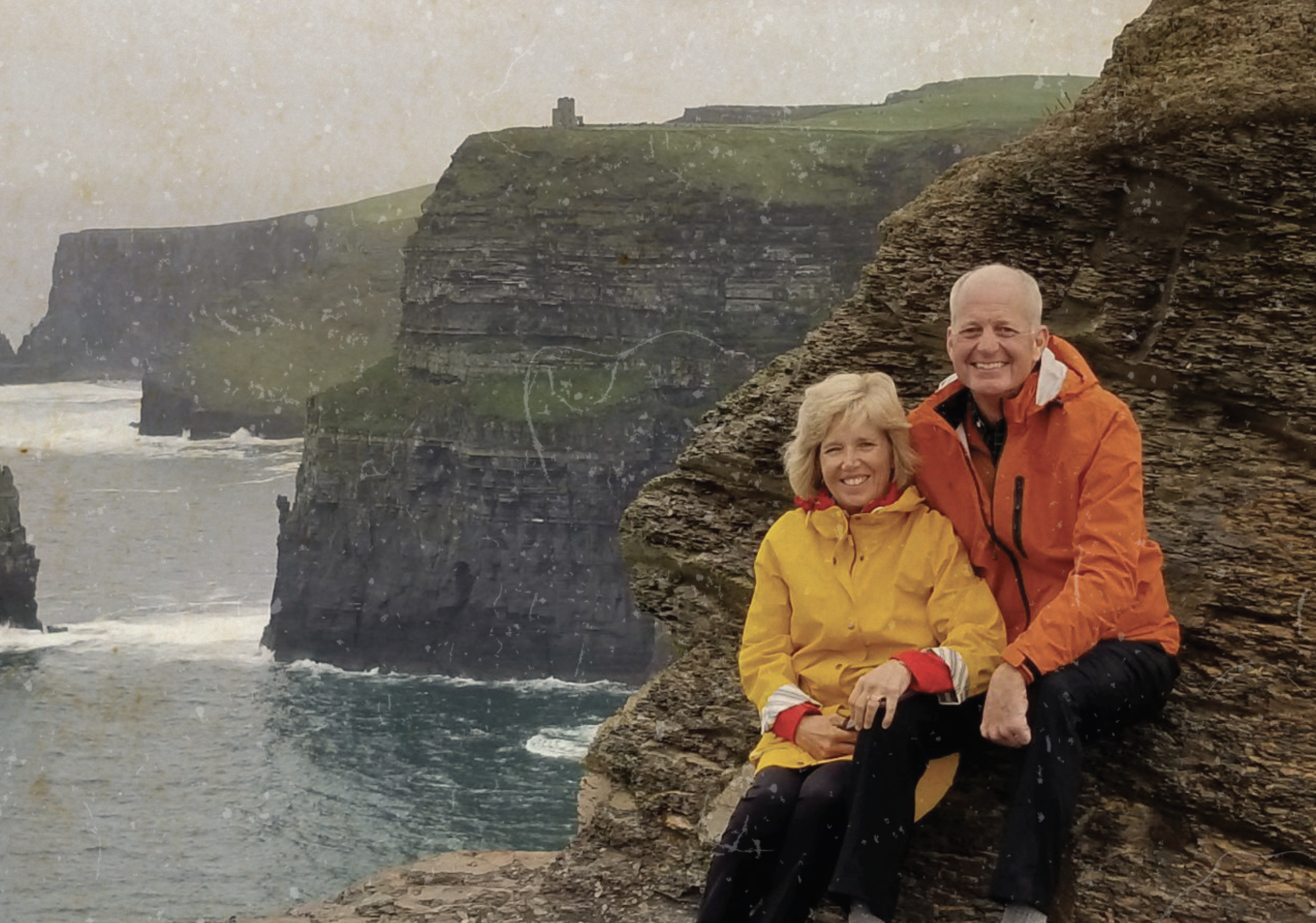
After exploring established practice opportunities in Virginia, none seemed quite right. Once we accumulated enough capital to open a practice we moved to Charlottesville and opened cold. We opened in August 1983 and were the first in town to advertise our services for eye exams and contact lenses. Looking back, it is hard to believe we survived and actually made enough to pay our bills. Fortunately, we were able to live off the income we made from optometric employment and both had part time jobs working one hour away. Within five years we gave up all outside employment.
Our practice grew from zero patients, to two offices, four doctors, and over twenty employees. We embraced medical eyecare, added new equipment each year, and were fortunate to experience growth every year we were in practice.
Before we knew it, our children graduated college and we were advised that we had enough money saved to retire whenever we wanted. We were in our late 50s. I still had the mindset of growing the practice, perhaps adding an additional location, but Steve wanted to retire and I did not want to do it alone. We sought the advice of Al Cleinman of Cleinman Performance Partners to map out our options. We learned there were fewer buyers able to purchase a large practice as a whole. The better option was to sell each location. We were also informed it usually takes a few years to sell, so we retained him to help us transition our practice.
Selling a practice takes time and there are lots of facets to it. Finding a buyer willing to provide a fair deal is perhaps the hardest part. Legal and accounting documents will be needed. Will you work for the new owner? For how long? What will your employment contract look like? What will you do with the real estate? We were lucky to have an unsolicited offer from MyEyeDr that we could not walk away from. Cleinman, having brokered many practice sales, knows a good offer from a bad one and advised us as such. He also walked us through the details, along with our attorney, financial planner and accountant. From the time we decided to look for a buyer to the time we actually sold took about 2.5 years and MyEyeDr purchased all the assets.
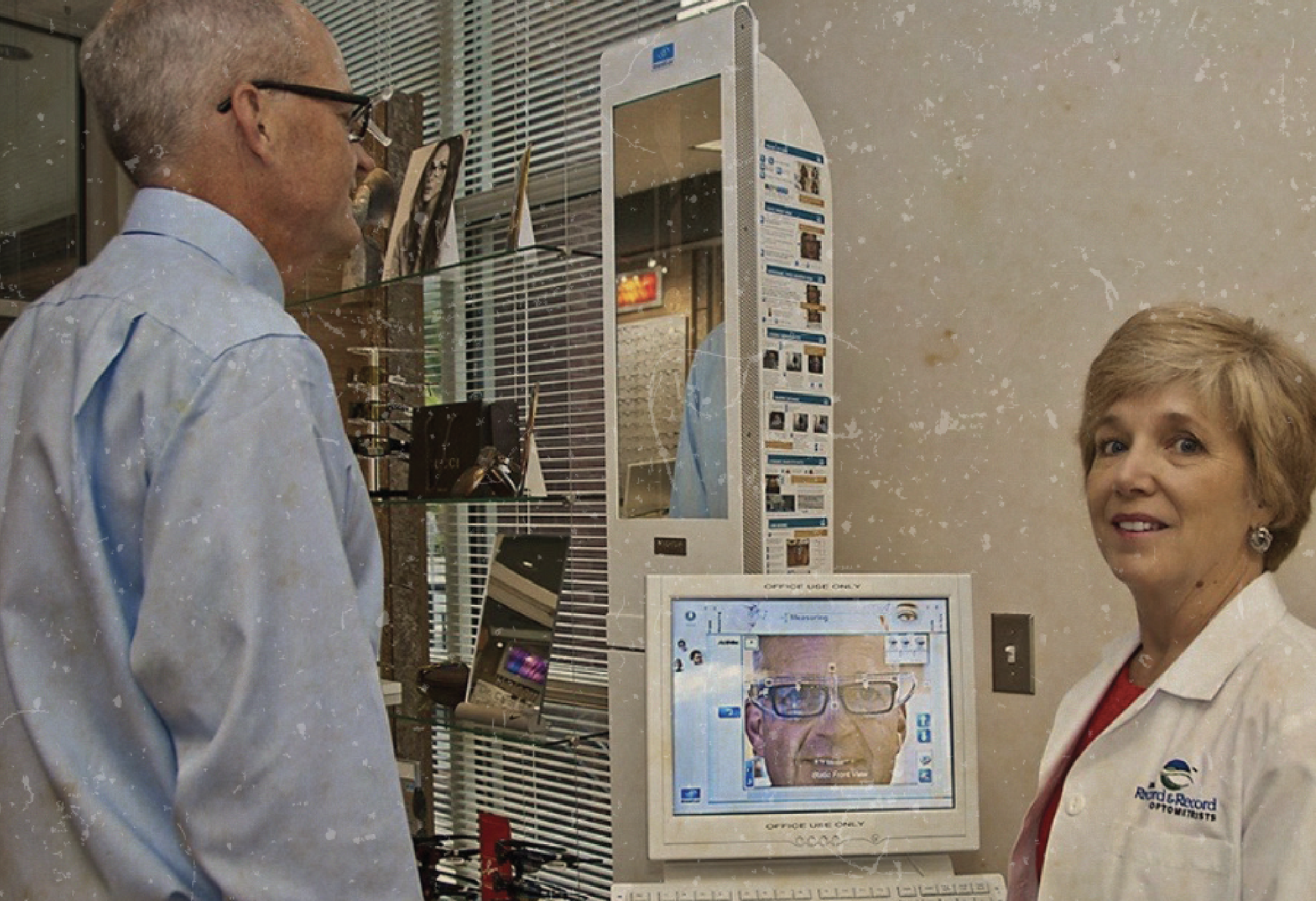
We have many colleagues who are transitioning their practice. In all cases, the employees are informed of the sale of the practice once it is definite that the deal will go through. In our case, we informed our employees one month prior to closing. Since Steve and I were employed by MyEyeDr, MyEyeDr informed our patients of our new affiliation. As it came closer to the time when I would retire, I thanked my patients, hugged them and told them it would be the last time I saw them professionally. Often it was my retired patients who said “You can’t retire. Who am I going to see for eyecare?” Most patients thanked me for their care and congratulated me.
I consult with doctors at least once a month about practice transitions. The first thing I tell them is “no matter who you sell your practice to, your practice will change.” Second, I inform them that “the best deal for your practice is the deal that is best for you.” Everybody’s situation is different. The longer you work in the practice after the sale, the more valuable the practice is.
For the doctor who is unsure they should sell their practice I’d ask first, “What do you plan to do after? Will you continue to work? Will you change careers?” If you plan to retire I can assure you, you will be surprised at how busy you will be. Volunteer opportunities abound. New hobbies and games are ready for you to explore. New friendships will form, and the extra free time you now have will let you experience life’s moments with greater joy and enthusiasm.
QUICK Q&A
How would you describe the emotions you went through during the process?
I was consumed by worry about giving up control… but I found it quite liberating to see patients and go home. Once I left the office, work was behind me.
Would you have done anything differently?
I speak at Cleinman’s Practice Transitions Conference and have learned a lot about transitioning a practice. There are various options you and your new owner may have that I was unaware of. This type of meeting did not exist when I sold. I wished it had. The transition will go a lot smoother if you allow someone who has experience in practice transitions help you.
What did you do to help overcome doubt?
I reminded myself that the business of health care was changing and eyecare was no exception. Colleagues I respected and considered good businessmen were also selling their practices to private equity. Health care professionals may not think of their practices as businesses, but they are and business models change.
Are you happy with the outcome?
If you are anything like me, your practice is something you are very proud of. It is very emotional to give up what you have taken years to build, you want to be sure your patients will be cared for the way they need to be taken care of. Fortunately, the next generation of optometrists are very bright and take very good care of patients. Throughout the sale process, even up until the last week, I wondered if I was making the right decision. My husband encouraged me it was the right thing to do. Now, I am so happy I sold.
How are you spending your time post-ownership?
I have been fortunate to continue my optometric affiliations by serving as secretary treasurer of AOA’s Optometry Cares Board, co-chairing the HEHC community grant program, speaking on optometry topics, and up until last fall, serving on the disbanded Essilor Advisory Board. Not a day goes by however, where I don’t think about starting a venture to bring new optometric services to the members of my community.
LEAVING A LEGACY
Michael Cohen, OD | Four County Family Eye Care Center, Winslow Township, NJ | Sold business: TBD
our County Family Eye Care Center opened on Sept. 11, 1973 in the Winslow Professional Center of Tansboro/ Berlin/ Winslow Township, NJ, three months after I graduated from Pennsylvania College of Optometry. My father, Dr. Philip Cohen, learned about the center from a patient of his who was friendly with the building’s owner. We decided it looked like a good place to open a new optometric practice, signed a lease, and began planning to lay out and equip the office.
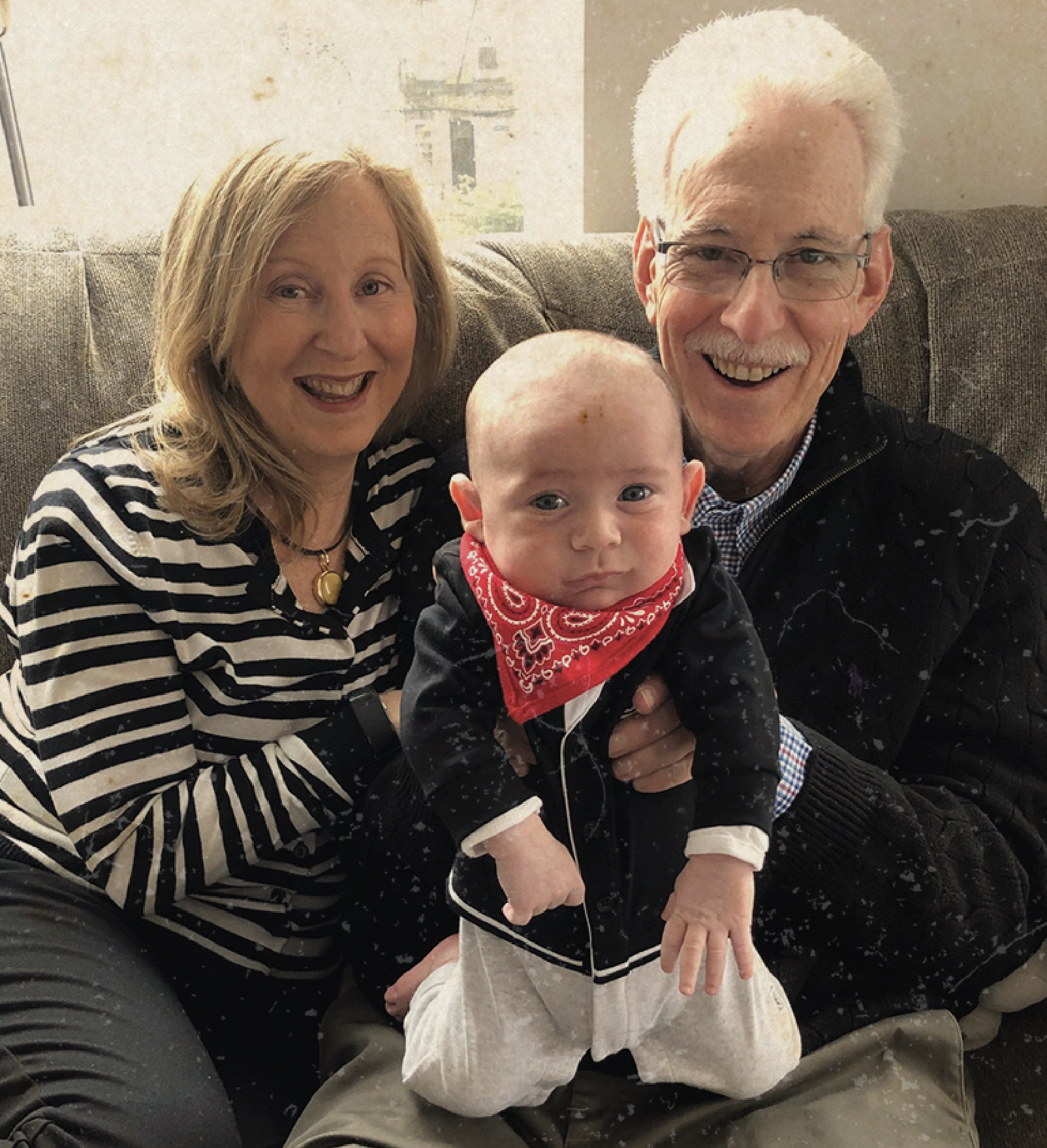
My wife and I made address labels on a typewriter and had announcement cards printed. We mailed out thousands of cards and on the day we opened, I prayed for good business. In those days, if I saw one or two patients a day, I considered myself lucky. I spent most of my time watching General Hospital and writing a digest for my wife, who was keeping us afloat teaching at a local school. I grossed $33,000 that first year. No insurance. No credit cards. Cash only. I made patients’ glasses by hand in my optical lab.
A couple years later, the owner lost the building in a bankruptcy. I decided to look for real estate to purchase and build a new office on. A patient and local realtor, Ursula Christinzio, found me a location nearby; a vintage 1850s farm house sitting on 1.5 acres on the highway at an intersection with a county road. I opened Four County Family Eye Care Center on June 1, 1979.
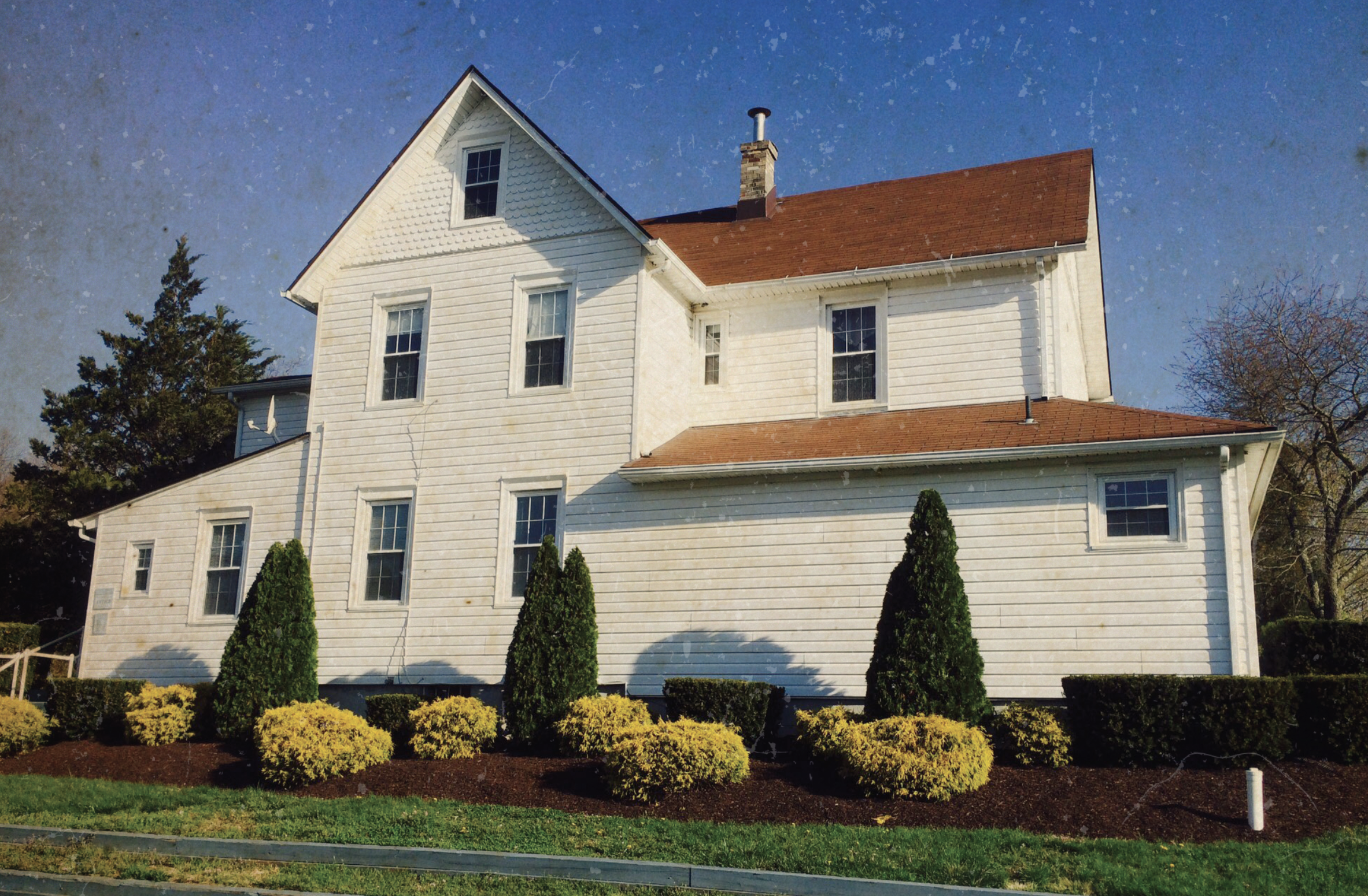
I’ve been in optometric practice in Winslow Township for 45 years offering comprehensive eye exams, diagnosis and treatment, and contact lens and eyeglass fitting. We counsel patients about LASIK and do the follow-up care, treat glaucoma, and make referrals to many ophthalmic sub-specialists in the region. I have three full-time staff and three part-time. My office manager started working for me at 17 years old; she is now 47. People tend to stay on for years; it is better to pamper your staff and keep them happy, than it is to abuse them, lose them, and train new people!
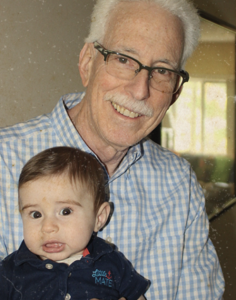
Michael Cohen, OD
I realized it was time to think about ending my ownership and retiring when my wife informed me that she hates the cold and would like to spend winters in a warmer clime. Also, I noticed that most of my patients my age are now retired and very few of my peers were alive and well and still running their own practices.
My ideal exit strategy would be to find an honest, talented, skilled, clever, caring, and compassionate OD who would be willing to purchase both the real estate and my practice and allow me the luxury of still seeing patients.
I worry that, if my staff get wind that I am thinking about retiring, they will look for employment elsewhere. Hiring and training staff is costly, time-consuming, and fraught with peril. Also, is it fair to hire someone when you are planning on leaving? When I have confirmation I am throwing in the towel, I’ll meet with my employees and lay my cards on the table.
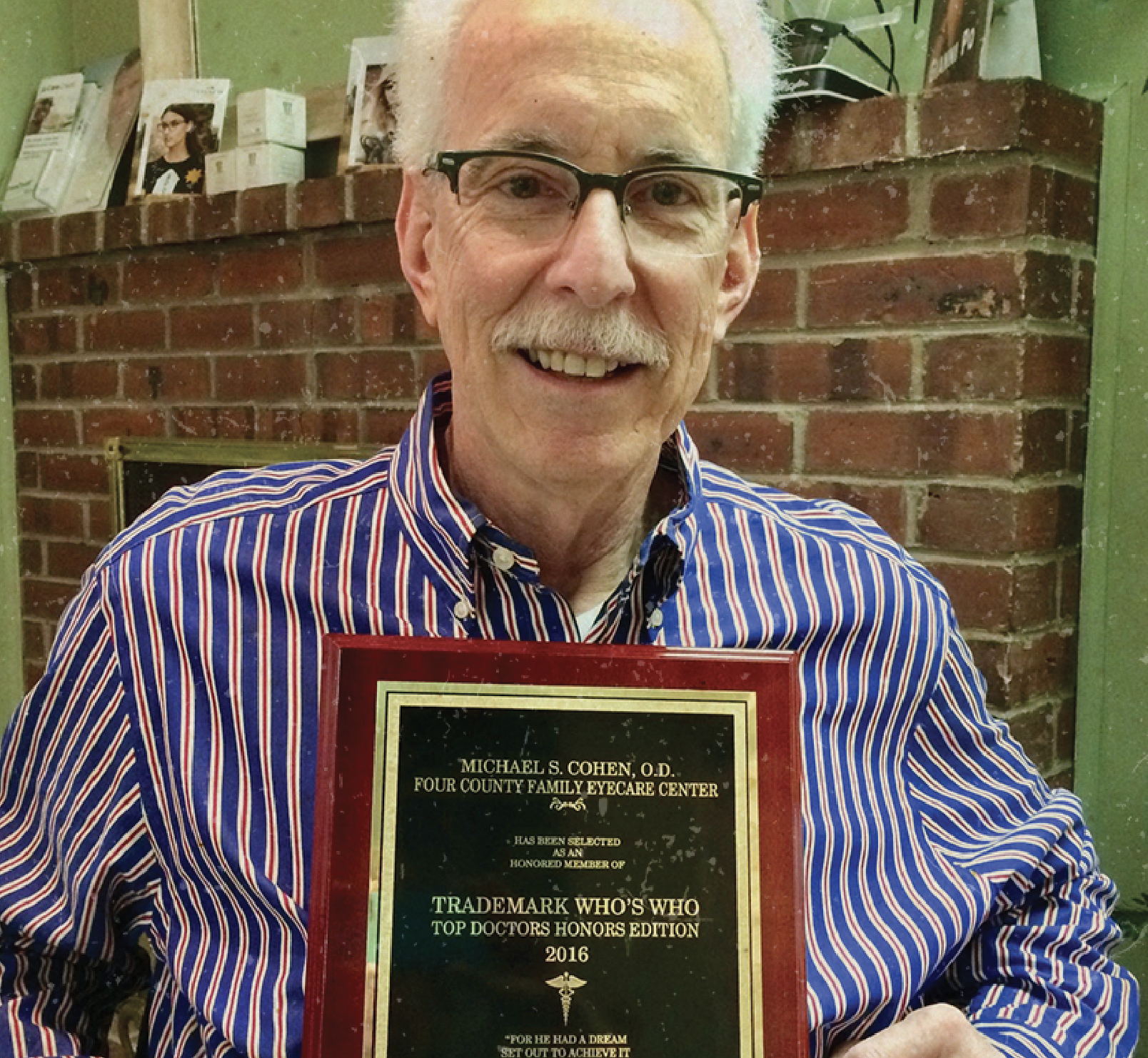
I lead a very busy life now. Selling my property, as well as my practice, is time-consuming. I’ve spoken to a number of professional practice brokers, all of whom concur my gross revenue does not justify them getting involved. They all said I should sell it myself and I would like to continue seeing patients for two more years, provided my health holds up.
Every day, my long-time patients query me about my plans. I’ve been honest with them. I’d love to slow down but I don’t see any way out. Everyone encourages me to stay on … then they tell me how much they enjoy their retirement. My advice to other ODs looking to transition out of ownership is to try and build a business that has sufficient gross revenue to justify a professional broker skilled at doing all of the things that I must now do myself.
QUICK Q&A
How would you describe the emotions you are experiencing as you begin this process?
I am feeling quite inadequate to meet this challenge. I have a fear of failure.
Is there anything you wish you had done differently to prepare for this?
I did it my way! I have always been true to myself, my family, my staff, my patients/friends. If I have to turn off the lights, lock the doors, and not look back, I really have no regrets. I’ve helped a great many people over the years.
What do you do to help overcome doubt?
I talk to friends who are older than I am and find out how they were able to live so long and so well. I attend religious services weekly to meditate through prayer. I’ve discovered that Tai Chi and Quigong help me divest myself of my monkey brain. I call this my standing meditation. I occasionally use a therapist friend to bounce ideas off, when I cannot seem to move a big rock that is blocking my progress.
What would make you happiest with the final outcome?
I would love to see someone take the baton and run with it after I am gone.
How do you plan on spending your retirement?
Workout at the gym ten hours a week, travel to new places, spend time with my children and grandchildren and maybe spoil them a bit. Find people less fortunate and extend a helping hand. Go to synagogue on Saturday mornings, read the classics, watch great shows, eat great food at the best restaurants, and take in some Broadway shows now and then.